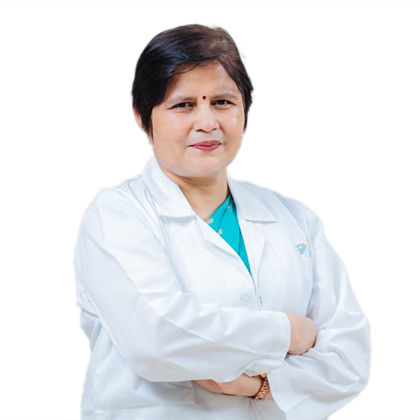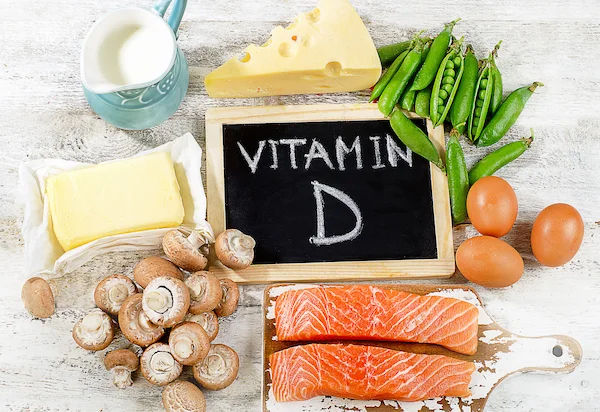PCOD Diet: Foods to Include and Exclude
Know about the PCOD diet, which foods are good and which are not, how to stay healthy with PCOD and lifestyle tips to manage PCOD.

Written by Dr. Vasanthasree Nair
Reviewed by Dr. Rohinipriyanka Pondugula MBBS
Last updated on 13th Jan, 2026

Introduction
Polycystic Ovary Disorder (PCOD) is a common hormonal disorder affecting women of reproductive age. While it can cause symptoms like irregular periods, weight gain, acne, and fertility issues, managing PCOD effectively often starts with the right diet. A well-balanced diet can help regulate hormones, improve insulin resistance, and reduce symptoms.
In this article, we’ll explore the best foods to include and avoid in a PCOD-friendly diet, along with practical tips to manage the condition better.
Understanding PCOD and Its Connection to Diet
PCOD is linked to insulin resistance, where the body struggles to use insulin efficiently, leading to higher blood sugar levels. This, in turn, increases androgen (male hormone) production, worsening PCOD symptoms.
A healthy diet can:
Improve insulin sensitivity
Balance hormones
Aids in weight management
Reduce inflammation
Foods to Include in a PCOD Diet
1. High-Fibre Foods
Fibre slows digestion, preventing blood sugar spikes.
Good sources include:
Vegetables: Broccoli, spinach, kale, carrots
Fruits: Apples, berries, pears, oranges (in moderation)
Whole grains: Oats, quinoa, brown rice, whole wheat
Legumes: Lentils, chickpeas, black beans
2. Lean Proteins
Protein helps stabilise blood sugar and keeps you full longer.
Opt for:
Plant-based proteins: Tofu, tempeh, edamame
Lean meats: Chicken, turkey, fish (especially fatty fish like salmon for omega-3s)
Eggs and dairy (in moderation): Greek yoghurt, cottage cheese
3. Healthy Fats
Healthy fats reduce inflammation and support hormone production. Include:
Nuts & seeds: Almonds, walnuts, chia seeds, flaxseeds
Oils: Olive oil, avocado oil
Fatty fish: Salmon, mackerel, sardines
4. Anti-Inflammatory Foods
Chronic inflammation worsens PCOD symptoms.
Add:
Turmeric, ginger, and cinnamon help with insulin sensitivity.
Berries, leafy greens, and tomatoes are rich in antioxidants.
5. Low-Glycemic Index (GI) Foods
Low-GI foods prevent blood sugar spikes.
Choose:
Sweet potatoes, quinoa, and whole grains
Non-starchy vegetables (zucchini, bell peppers, cucumbers)
Consult a Top gynaecologist for the best advice
Foods to Avoid in a PCOD Diet
Foods which can be avoided include:
1. Refined Carbohydrates & Sugary Foods
These spike insulin levels and worsen insulin resistance. Avoid:
White bread, pasta, and pastries
Sugary cereals, candies, sodas
Packaged snacks (chips, cookies)
2. Processed & Fried Foods
High in unhealthy fats and preservatives, they increase inflammation. Limit:
Fast food (burgers, fries, pizza)
Packaged snacks (chips, instant noodles)
3. Dairy (For Some Women)
Dairy may trigger hormonal imbalances in some. Try reducing:
Milk, cheese, ice cream
Opt for almond or coconut milk alternatives
4. Excessive Caffeine & Alcohol
Caffeine can increase cortisol (stress hormone), worsening PCOD.
Alcohol affects liver function and hormone regulation.
Lifestyle Tips to Manage PCOD
1. Exercise Regularly
Aim for 30 minutes daily (walking, yoga, strength training).
Helps with insulin sensitivity and weight management.
2. Manage Stress
Practice meditation, deep breathing, or journaling.
High stress worsens hormonal imbalances.
3. Get Enough Sleep
7-9 hours of sleep helps regulate hormones.
4. Stay Hydrated
Drink 2-3 litres of water daily to support metabolism.
When to Seek Medical Help?
While diet and lifestyle changes help, medical guidance is crucial. If you experience:
Severe irregular periods
Uncontrolled weight gain
Hair loss or excessive facial hair
Difficulty conceiving
Consult a doctor for personalised treatment, which may include medication or supplements.
Final Thoughts
Managing PCOD starts with mindful eating and healthy lifestyle choices. By including nutrient-rich foods and avoiding triggers, you can balance hormones, improve insulin sensitivity, and feel better overall. Small, consistent changes make a big difference—start today!
Consult a Top gynaecologist for the best advice
Consult a Top gynaecologist for the best advice

Dr Jaya Kumar Agarwal
Obstetrician and Gynaecologist
25 Years • MBBS , DGO , DNB (obstetric and gynecology) DGE diploma in Gyne endoscopy (Germany )
Delhi
Apollo Hospitals Indraprastha, Delhi

Dr. S Asha Devi
Obstetrician and Gynaecologist
13 Years • MS.OG .,MRCOG (UK)
Chennai
Apollo Speciality Hospitals OMR, Chennai
(100+ Patients)

Dr Bhawna Garg
Gynaecological Oncologist
26 Years • MBBS, MS, (PGI MS ROHTAK) FELLOWSHIP GYNECOLOGY ONCOLOGY, (CANCER INSTITUTE CHENNAI)
Delhi
Apollo Hospitals Indraprastha, Delhi

Dr. Wahida Suresh
Obstetrician and Gynaecologist
27 Years • MBBS, DNB, MNAMS Obstetrician & Gynaecologist, Fertility Specialist
Chennai
Apollo Speciality Hospitals OMR, Chennai
(175+ Patients)

Dr Lekha K L
Obstetrician and Gynaecologist
15 Years • MBBS,DGO & DNB in Obstetrics and Gynecology
Angamaly
Apollo Hospitals Karukutty, Angamaly




